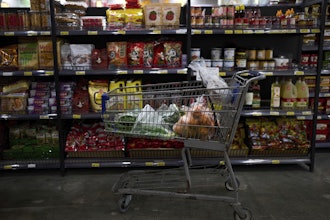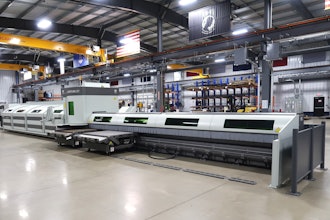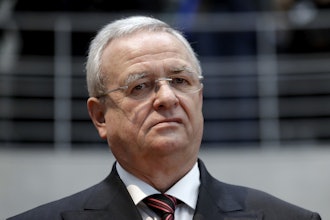MILLIKEN, Colo. (AP) — Tim Bernhardt has a tough time walking through his dairy parlor east of here.
"It's like a ghost town in there," he said, nodding toward the parlor from his office. His older brother, Dave, agrees. "The cows aren't in there bawling, there's no noise, it's too quiet," he said.
The Bernhardt Dairy, in operation east of Milliken since 1920, is now empty of cows, another sign of the effect of the worldwide recession on the local industry.
In June, Tim, 53, and Dave, 60, decided to participate in one of the dairy herd retirement programs offered by Cooperatives Working Together. It's an industry-funded program designed to take milk out of production and increase the price of milk to those producers who stay in business. Tim ran the dairy while Dave is in charge of the family farming operation, which includes about 1,200 acres of corn and alfalfa hay.
The Bernhardt Dairy participated in the June program that removed 101,040 cows, which produced almost 2 billion pounds of milk nationwide. CWT removed 367 herds in 41 states.
Bill Wailes, head of the animal science department and a former dairy specialist at Colorado State University, said the Bernhardt Dairy was one of only a few in Colorado that participated. He said none of Colorado's big dairies participated until the Johnson Dairy of Eaton went into the latest program offered, removing 8,700 cows from that operation.
CWT expected to wrap up its third herd retirement in the last nine months sometime this month. It was the second-largest herd retirement ever. The current round will accept 86,710 cows and 1.8 billion pounds of milk. When combined with the previous retirements, CWT's actions will result in about 400 million fewer pounds of milk a month going to market this fall.
In the case of the Bernhardt Dairy, 1,375 cows left the dairy in June, 1,150 of which were being milked. That was a "tough time," Tim said. They had milked their black and white Holsteins three times a day.
"I don't know who told me, but somebody said we should just get away from the dairy when the cows were leaving. So my wife (Mena) and I went to Seattle for about a week, visited some friends and just got away," Tim said. "It was pretty emotional; I'm glad we decided to get away from it."
That's understandable.
Tim and his brother, Dave, have grown up with the family dairy and farming operation started by their grandfather, George Bernhardt, in 1920. George was among the Germans from Russia who immigrated to the United States in the early 1900s and lived in Denver for a spell before moving to the Milliken area and buying the farm.
Their father, Rueben, was born on the farm in 1922 and now, at 87, is no longer actively involved.
Tim grew up working at the dairy, then took over the operation in 1980 after graduating from CSU with undergraduate and graduate degrees in animal science, while his brother concentrated on the farming.
"I've been out here all my life; it's a lifestyle, not just a job," he said.
It's been an adjustment for the brothers since the dairy parlor was shut down and there were no more cows to milk.
"The milk checks aren't coming in any more, but when they were they didn't cover expenses," Dave said. Instead of marketing their corn and alfalfa through their dairy herd, they are selling the corn and hay to other dairies in the area or to cattle feeders.
"We may still put up some (corn) silage, because the rest of the dairies around here are in the same shape we were in. So instead of selling the entire crop, we will put some up and sell it as somebody needs it and can pay for it," Tim said. That will help the farm's cash flow, Dave added.
They've also rented some ground at the dairy to a farmer who is raising replacement heifers for the industry and who hopes to keep about 1,000 calves on the farm.
With the cows gone, the brothers also have found time to catch up on things, such as getting finances in order and improving facilities at the farm. "When you're busy you put a lot of things off, saying you'll get to them the next day. Now we can get caught up with that," Dave said.
The current situation for the industry, Tim said, "is as vicious as I've seen it and dad said it's the worst he's ever seen it."
Under the terms of the retirement program they entered, the Bernhardts will have to stay out of the business for at least a year. If they return before then, they would have to pay 10 percent of the money they received for going into the program.
"We're talking about a lot of money, so I think we'll probably be out a year. Then, maybe we'll look at things and see if we want to start up again. But things are going to have to be a lot better than they are right now," Tim said.






















